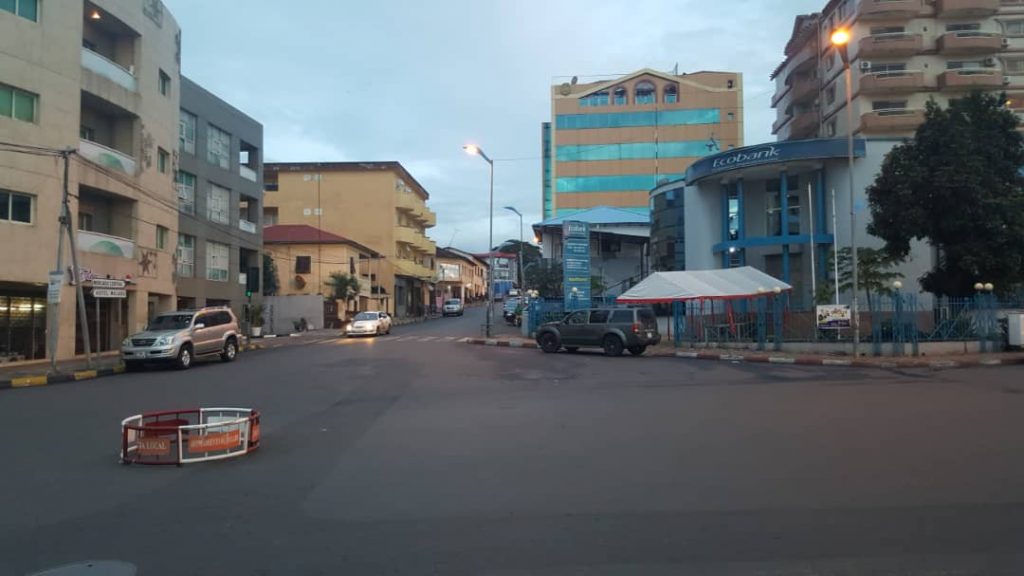The Parliament of Equatorial Guinea must improve the anti-corruption law and should amend the constitution or ratify the Second Optional Protocol to the International Covenant on Civil and Political Rights, aimed at abolishing the death penalty, for a complete elimination of the death penalty in the country, since the amendment of the criminal law may not be enough.
On 23 February, the Third Deputy Prime Minister of the Government, in charge of Human Rights, officially announced the amendment of the Criminal Code where the death penalty will be removed. For the first time this parliamentary reform has been announced in official media and in writing, a procedure that may still take some time since it still needs to be reviewed by the senate.
The Senate is also in the process of reviewing the Decree-Law on Prevention and Combating Corruption approved by the lower house in July 2020. The abolition of the death penalty would be incomplete if the Code of Military Justice is not amended.
The Article 13 of the Constitution states that the death penalty will be regulated by law. There are currently at least 2 laws in force that contain the death penalty: the above-mentioned Criminal Code being reviewed, and the Code of Military Justice in force for the army and security forces. Both texts, still in force in Equatorial Guinea, belong to the time of the Franco dictatorship in Spain.
The amendment of Criminal Code removing the death penalty would not prevent soldiers from being sentenced to death when tried by the military jurisdiction. It should also be noted that this Military Justice Code of 1945 is so outdated that it foresees trying civilians in some cases, something regularly done in Equatorial Guinea.
The amendment of Article 13 of the Constitution is possible by the affirmative vote of three-quarters of senators and deputies (art. 133.3 of the Fundamental Law). Is the view the Observatory on Human Rights and Good Governance of APROFORT, that the ratification of the Second Optional Protocol to the United Nations Convention on Civil and Political Rights would be the fastest mechanism for the abolition of the death penalty. In both cases, a legal cascade effect would be initiated that would automatically leave without effect any law that included the death penalty.
In any case, and to avoid possible execution of the death penalty in the military jurisdiction, the moratorium or suspension of the death penalty, in force since 2014 after the accession of Equatorial Guinea to the Community of Portuguese Speaking Countries, must remain in force.
Obsolete Criminal Code
A new Criminal Code is necessary because the one currently applicable is the one in force before the independence of Equatorial Guinea from Spain in 1968, which is the same one under Franco´s dictatorship in Spain. This obsolete code for example contains fines in pesetas, the former Spanish currency, generating legal uncertainty since judges do not apply a logical exchange rate criterion. The general amendment of the Criminal Code, in addition to eliminating the death penalty, would strengthen the legal framework.
Anti-corruption law can be improved
In July 2020, a Decree-Law on anti-corruption was approved as part of the good governance plan agreed with the International Monetary Fund. This legal text is now being reviewed by the Senate, although by the nature of the instrument, decree-law, means that it is already applicable, as stated by the Attorney General of the Republic.
However, as pointed out by the Equatorial Guinean Commission of Jurists in their analysis, this law requires substantial improvements. In particular, extradition rules should be included in cases of international corruption; civil society should be avoided as it is a key player in the prevention of corruption as noted by the United Nations; lawyers and investigators should be excluded in some types of crimes because it could be contrary to the right to an effective judicial protection; and finally, the must clarify whether the president and vice president should make an asset declaration like every other public officials.
According to Transparency International’s 2020 Corruption Perceptions Index, Equatorial Guinea is perceived as one of the most corrupt countries in Africa.
Commitments in Human Rights and good governance of Equatorial Guinea
The abolition of the death penalty would mean the fulfilment of both the commitments made to the United Nations and to the Community of Portuguese-speaking Countries (CPLP). The abolition of the death penalty was one of the main conditions for Equatorial Guinea’s admission to the CPLP, considering that the official language of Equatorial Guinea is Spanish.
As noted above, the agreement between the International Monetary Fund and the Government of Guinea Ecuatorial provided for the publication of an anti-corruption law. This agreement is worth $282 million disbursed if commitments are met, so far only the initial $40 million have been disbursed. The latest analysis from the Observatory of Human Rights and Good Governance of APROFORT concluded that only 20% of the agreement was fulfilled. Finally, following the ratification of the United Nations Convention Against Corruption in 2018 and the African Union Convention on Preventing and Combating Corruption in 2019, Equatorial Guinea is also obliged to develop an anti-corruption law.
APROFORT is an EU-funded project aimed at abolishing the death penalty in Equatorial Guinea, protect activists and promote the achievement of the Sustainable Development Goals, including those of good governance.
The amendment of the Criminal Code and the ongoing review of the Anti-corruption Law are steps towards fulfilling these international commitments, but there is still a lot of room for improvement.
